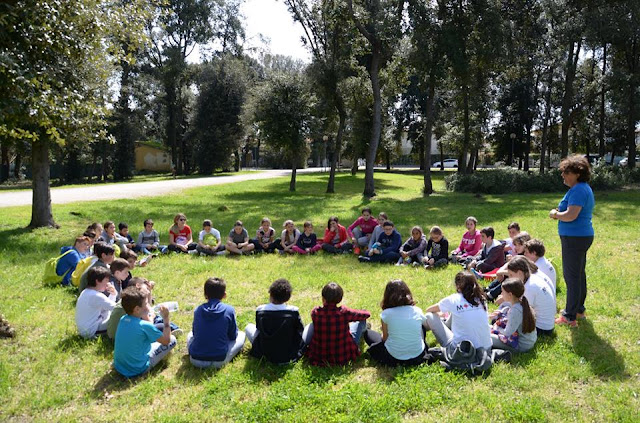Martial arts have recently gained very high popularity and a large group of
supporters. In many cases people who are not more interested in the subject,
treat martial arts as a discipline that causes more injuries than football -
nothing more wrong.
Here are the reasons why your child should attend martial arts classes:
1) Physical activity and the possibility of using energy
Today's style of life does not force us to physical activity... We spend
more and more time sitting down, whether at work or at home in front of the TV
screen or computer monitor, but we need to remembered that children should have
at least 60 minutes of physical activity a day! Martial arts classes can be one
of the way of providing it for our kid.
2) General physical development
Martial arts for children, contrary to appearances, are a discipline in which
the trainings are very diverse, and thus offer a much larger range of general
development exercises. The curricula contain mainly exercises with their own
body weight that have a very good effect on the child's muscle development,
posture stabilization and correction. Stretching affects flexibility. Joints
subjected to low loads, while working in the natural range of movement, have a
chance to develop in order to serve us as long as possible.
3) Reigning us with our body
In addition to the general development of physical fitness, martial arts
for children also teach the ability to control their own bodies, but also
aggression. It's not about teaching a child how to hurt someone. Martial arts
are mostly used to defend yourself and your own health as well as others.
People who persistently train martial arts are usually balanced people and
self-confident.
4) Psychological development
It turns out that in martial arts, as in other sports, e.g. in dance, the
learning of positions, techniques, formal arrangements or naming is a perfect
exercise of memory or abstract thinking.
5) Learning respect for others
In addition to work on remembering or abstract thinking, martial arts can
also be developed from a different angle. Namely, they are often associated
with discipline. This is quite a strong term, but it really focuses on a few
issues such as ceremonial (punctuality, focus, compliance with rules in the
classroom and consistency) or respect for the teacher (which translates into
respect for parents or teachers at school).
6) Working in a group
This is certainly a very important skill nowadays, especially useful in
life. In class, children do not exercise alone. They usually function in their
group, participate in team games (during warm-up). Practicing in pairs help
each other in learning techniques, see how they affect the other person, are
able to control their strength and are taught respect for the other person.
7) Systematic work leads to success
Classes usually take place at the same times and places. Hence the learning
of regularity by timely (and punctual) appearing in class. Regularity is also
found in exercises, where the child learns by repeating exercises regularly,
thus improving his technique.
8) Spending time usefuly
Of course, it is important to balance and find time both for learning,
movement, working on your character, as well as for fun or just moments of
laziness. Classes spent on the mat are able to give the child much more real
interaction than the time spent at the computer or phone.
Will you let your child practice martial art?





















